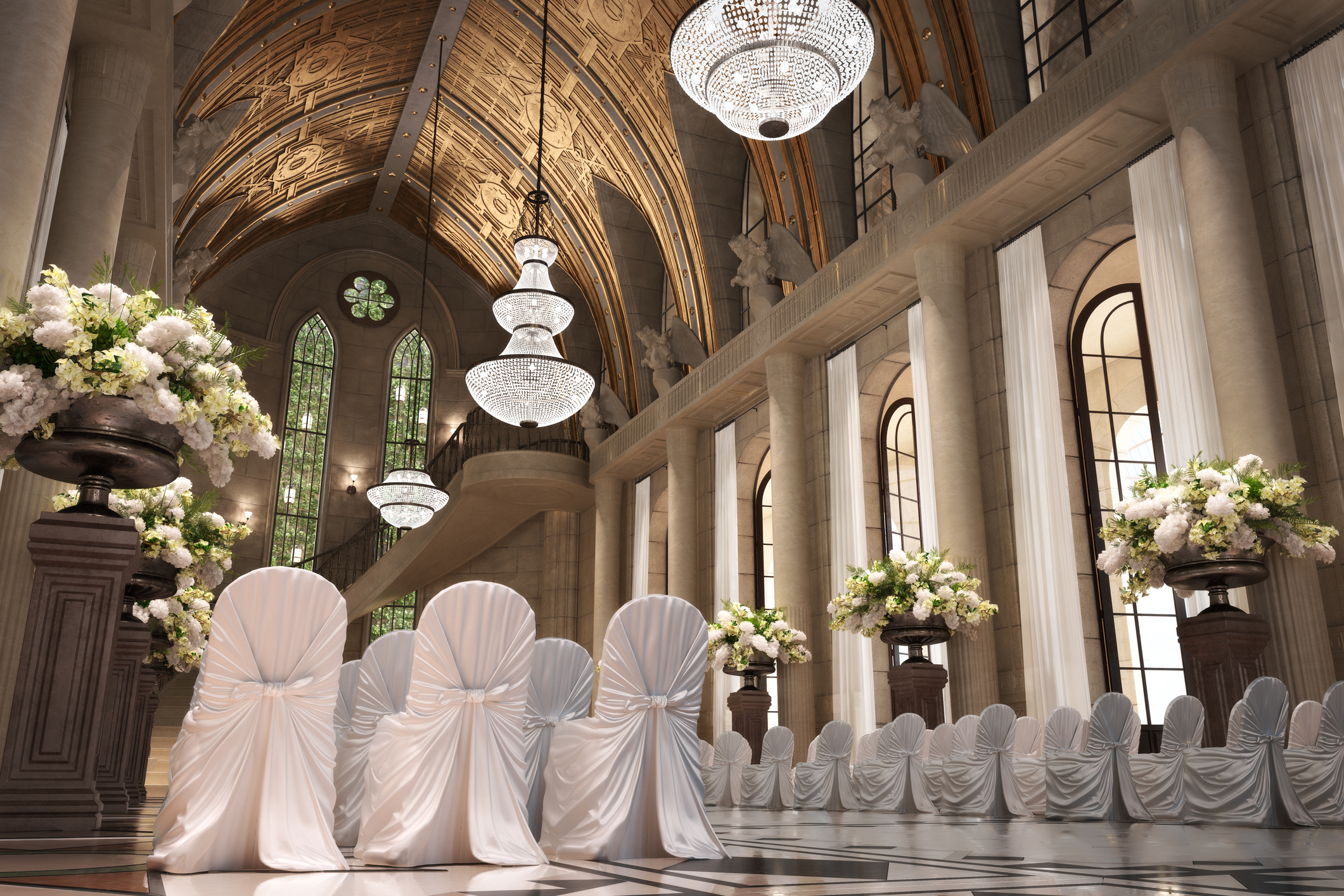
Your wedding ceremony is a family union and reunion, a sacred contract, a religious vow, and the most meaningful occasion of your lifetime. To have a church ceremony, you must be a member in good standing of the church for a specified amount of time prior to the ceremony. There will be pastoral pre-wedding counseling and sacramental requirements. Each church will have a packet outlining their rules concerning wedding attire, music selections, organist participation options, flowers, photography, videography, wedding committees, the ban on inebriated grooms and groomsmen, extra decoration stipulations, fees, and clergy reservations. Do not assume anything—ask for and follow the rules. The result is very romantic, very personal and sacred commitment with your family and home church supporting your marriage.
Secular weddings may include magistrates, hired officiants, or clergy (except Catholic). You are not restricted by any rules, but your religious family may not consider that you are “really married.” Planning an outdoor wedding always requires a backup indoor ceremony location.
Temperatures above 65 degrees, shelter from sun, rain, wind and falling nuts, fan for scorching heat, chairs, microphones, ambient noises, and insects are all factors to reckon with. Keep track of daylight savings time changes in the spring and the fall for accurate sunlight times. Always ask what flowers will be blooming on your wedding day. Never face the sunset in your ceremony, you don’t want to be squinting in your photos.
